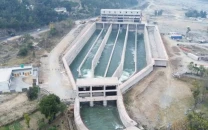China’s cautious and gradualist approach on Afghanistan
China decided to maintain a diplomatic presence and help Afghan people cope with grave humanitarian crises

Following the Taliban’s succession to power in Kabul on 15th August, China decided to keep its embassy operational. The Chinese government made it clear that their foreign policy will continue to prioritise peace and stability in Afghanistan. Short of recognising the Taliban regime, China — along with Pakistan, Russia and Iran — decided to maintain a diplomatic presence and help the Afghan people cope with grave humanitarian crises.
Several questions have been raised regarding China and the prevailing situation in Afghanistan, like: will China fill the vacuum in Afghanistan created after the US withdrawal? Why does Beijing consider the Taliban as a major stakeholder in Afghanistan? How will China pursue a ‘gradualist’ and ‘cautious’ approach in Taliban-controlled Afghanistan while aiming to invest for exploiting $1 trillion mineral resources? What are the implications of the Taliban’s takeover of Afghanistan on Sino-Pakistan policy vis-à-vis Kabul?
In an article titled “Understanding China in Taliban-led Afghanistan” Dr Chulanee Attanayake and Zheng Haiqi say: “On 15 August 2021, the world shockingly witnessed the Taliban returning to power in Afghanistan after 20 years. Many countries are reeling from the shock and still struggling to figure out how to respond to the radical change in Kabul. China, however, responded calmly and cautiously, as if Beijing was always prepared for this change of scene. Noting that Afghanistan has undergone major changes, China expressed hope in the Taliban’s statement of its intent to pursue a peaceful power transition. Foreign Ministry Spokesperson Hua Chunying noted that China respects the sovereignty of Afghanistan and the will of all factions in the country and hopes that the Taliban can form solidarity with all Afghan factions and ethnic groups.”
The Chinese policy vis-à-vis the Taliban is totally different from what it was when the Taliban first captured power in September 1996. During the Taliban regime from 1996-2001, China had ceased diplomatic relations with Kabul. It was only after the dismantling of the Taliban regime following the US-led attack on Afghanistan that China re-established its diplomatic presence in Kabul and forged normal relations with the pro-American regimes of Presidents Hamid Karzai and Ashraf Ghani. But, this time, China reacted in a different manner when it was apparent that the Taliban were gaining ground in Afghanistan following the Doha Agreement of February 2020. Therefore, just before taking control of Kabul, Taliban leaders had a meeting with Chinese representatives at the end of July. Taliban spokesperson Suhail Shaheen called China a ‘friendly’ country and promised not to allow any separatist groups from China to operate in Afghanistan, referring to China’s reiterated call to cut ties with the East Turkistan Islamic Movement (ETIM). During this meeting, Wang Yi said: “Taliban is an important military and political force in Afghanistan and is expected to play an important role in the country’s peace, reconciliation and reconstruction process.” Getting an endorsement from a global power may have boosted the Taliban’s confidence.
There can be two major objectives that Beijing wants to pursue in a Taliban-led Afghanistan. First, China will render diplomatic recognition to the Taliban regime only when Kabul guarantees that the Taliban regime will not allow the ETIM and other extremist Islamic groups like the Islamic Movement of Uzbekistan (IMU), ISIS-K, and al-Qaeda to meddle in the restive Muslim province of Xinjiang. China’s priority is security and stability in the region.
As rightly stated by John Calabrese in his article “Filling the Vacuum? The Danger on China’s Doorstep”, “for China, engaging the Taliban is more a matter of managing threats than seizing opportunities. Beijing’s perennial concern has been, and remains, the potential for Afghanistan to become a sanctuary for militant groups targeting Chinese territory, economic assets in the surrounding region, and/or diplomats and workers. The unusually well-publicised meeting in Tianjin in July between Foreign Minister Wang Yi and the then-head of the Taliban political commission, Abdul Ghani Baradar, focused on the issue of the Taliban’s ties with Uighur groups. In a statement issued by the Chinese Foreign Ministry, Wang obtained assurances the Taliban would “never allow any force to use the Afghan territory to engage in acts detrimental to China.”
We have yet to see the extent to which the Chinese government is convinced about the Taliban’s assurances of not allowing the use of Afghan soil against their territory. A recent UN report found that hundreds of ETIM and ISIS-K fighters remain active in Badakhshan province of Afghanistan. An attack on Chinese territory originating from Afghanistan is, therefore, not implausible. During a July press conference, Liu Yunfeng, the director of the Counter-Terrorism Bureau of the Ministry of Public Security, acknowledged the ongoing terrorist threat from neighbouring countries. Neither Afghanistan nor Pakistan was named but there was an emphasis on China to remain vigilant.
And what is China’s second objective? China is well-aware that Afghanistan has an abundance of natural resources, which Chinese companies can exploit if agreements are reached with the Kabul regime. During the regime of Ashraf Ghani in 2016, Afghanistan and China reached the Memorandum of Understanding on the Belt and Road Initiative, but no substantial progress was achieved. Similarly in 2007, the China Metallurgical Group Corporation and Jiangxi Copper Ltd were awarded a joint contract to extract copper from the huge deposits at Mes Aynak. However, it has been 14 years and there have been little to no developments on the site. In 2011, China National Petroleum Corporation (CNPC) won the right to develop an oilfield in the Amu Darya, which did not pan out either. Although CNPC started producing oil there in 2012, it suspended operations the following year and has reportedly exited the project. In both instances, the Chinese investments were required to support the implementation of these projects, but they never materialised.
Earlier this month, New Delhi hosted a meeting of National Security Advisers to discuss post-Taliban Afghanistan, which was attended by India, Iran, Russia, Uzebkistan, Tajikistan and Turkmenistan. Like Pakistan, China also declined the invitation to attend the meeting. Certainly, India would like to retain its role as a major player in Afghanistan to counter the Sino-Pak association in collaboration with the West, Russia, Iran and the Central Asian neighbours of Afghanistan. Naturally, this will have an impact on Beijing’s policy vis-à-vis the Taliban-led Afghanistan in the days to come.
Published in The Express Tribune, November 14th, 2021.
Like Opinion & Editorial on Facebook, follow @ETOpEd on Twitter to receive all updates on all our daily pieces.













COMMENTS
Comments are moderated and generally will be posted if they are on-topic and not abusive.
For more information, please see our Comments FAQ